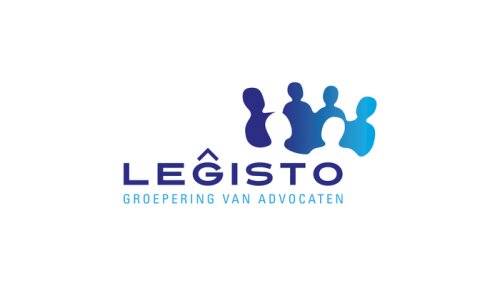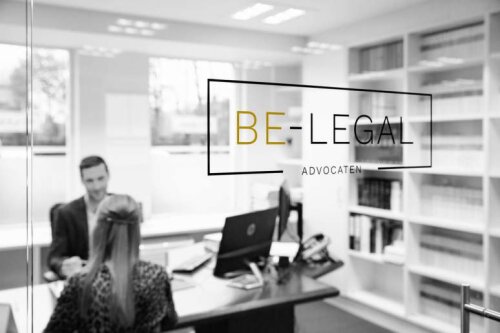Best Admiralty & Maritime Lawyers in Mol
Share your needs with us, get contacted by law firms.
Free. Takes 2 min.
List of the best lawyers in Mol, Belgium
About Admiralty & Maritime Law in Mol, Belgium
Admiralty and maritime law, often referred to as shipping law, governs legal matters connected to navigable waters, ships, shipping, and marine commerce. In Belgium, and specifically in Mol, this area of law addresses both domestic and international issues related to the operation and regulation of vessels, maritime commerce, the transport of goods or passengers by sea or inland waterways such as the nearby Canal Bocholt-Herentals, as well as related insurance, environmental, and labor matters. Mol, with its location in the province of Antwerp and proximity to significant inland waterways, is subject to national Belgian maritime law as well as European Union regulations and international conventions.
Why You May Need a Lawyer
Several situations may arise where legal advice or representation becomes necessary in the field of admiralty and maritime law in Mol. Common scenarios include:
- Shipping disputes, such as cargo damage or lost goods during transport
- Maritime accidents, including collisions or personal injuries on vessels
- Environmental issues like oil spills or water pollution affecting Mol’s waterways
- Contract disputes involving charter parties, bills of lading, or freight agreements
- Arrest or detention of ships due to unpaid debts or legal claims
- Fisheries regulation compliance and disputes
- Commercial disputes between logistics companies and carriers
- Claims involving crew employment, wages, or repatriation
If you are involved in any of these situations, consulting a specialized lawyer ensures your rights are protected and that you understand your legal options within the intricate web of Belgian, EU, and international maritime regulations.
Local Laws Overview
Belgian admiralty and maritime laws are primarily codified in the Belgian Maritime Code, which is regularly updated to reflect modern practices and align with European regulations. The laws cover ship registration, safety requirements, transport contracts, marine insurance, crew rights, and environmental protection.
In addition to national law, several international conventions apply in Mol including the International Convention for the Safety of Life at Sea (SOLAS), the MARPOL Convention on pollution prevention, and EU directives on inland navigation and shipping safety.
Regional and municipal rules, such as those governing the Canal Bocholt-Herentals and other inland waterways near Mol, also play a role by regulating aspects like navigation rights, mooring, and local environmental standards.
Frequently Asked Questions
What types of cases fall under admiralty and maritime law in Mol?
Cases may include shipping disputes, maritime accidents, environmental incidents on waterways, contract disputes, crew matters, and vessel arrests.
Can a vessel be detained in Mol for unpaid debts?
Yes, under Belgian law, creditors can request the arrest of a ship within Belgian territory, including Mol, to secure payment of outstanding debts or claims.
What legal protections exist for crew members working on ships in Mol’s waterways?
Crew members are protected under Belgian labor laws as well as international conventions, ensuring rights related to wages, working conditions, and safety.
What steps should be taken if there is a collision on a local waterway?
Report the incident to the local waterway authorities, ensure all safety protocols are followed, and contact a maritime lawyer immediately for guidance.
How does insurance work in maritime disputes?
Marine insurance policies typically cover cargo damage, vessel loss, and liability claims. Disputes often require legal advice due to the complexities of coverage terms and exclusions.
Who regulates shipping on the Canal Bocholt-Herentals near Mol?
Shipping on the canal is governed by both federal Belgian maritime authorities and local canal management offices, subject to Belgian and EU law.
What environmental laws apply to maritime activities in Mol?
Belgian national laws, EU directives, and international conventions like MARPOL apply. These regulate pollution, waste disposal, and response to environmental incidents.
Are there international laws that affect local shipping companies in Mol?
Yes, international treaties and conventions ratified by Belgium as well as EU regulations directly impact shipping operations in Mol.
Can individuals without maritime experience face legal issues on local waterways?
Yes, individuals operating personal boats or involved in waterway activities must comply with local navigation, safety, and environmental rules or risk legal consequences.
How do I find a qualified admiralty and maritime lawyer in Mol?
Seek lawyers with specialized maritime experience, check local bar association listings, and consider contacting regional legal aid organizations or chambers of commerce for recommendations.
Additional Resources
To further assist you, the following resources may be helpful:
- The Belgian Maritime Inspectorate: Oversees shipping safety, vessel registration, and compliance checks.
- Port and Waterway Authorities: Local offices manage waterways and enforce navigation and environmental rules around Mol.
- Federal Public Service Mobility and Transport: Belgian government department responsible for maritime and inland shipping regulations.
- Belgian Association of Maritime Law: Professional body that can direct you to specialized practitioners.
- EU Maritime Affairs and Fisheries: Source of EU directives and funding opportunities.
Next Steps
If you believe you require legal assistance with an admiralty or maritime matter in Mol, consider the following actions:
- Document all relevant facts, including contracts, incident reports, correspondence, and evidence of any damages or injuries
- Reach out to a specialist lawyer who is familiar with maritime and inland waterway law in Belgium
- Consult official government bodies for guidance or to initiate administrative procedures if necessary
- If urgent action is required, such as a vessel arrest or pollution incident, notify the local authorities immediately and seek legal support
- Schedule a consultation to discuss your situation, possible strategies, and costs involved before proceeding further
Obtaining professional legal advice ensures your rights are safeguarded and increases the likelihood of a favorable resolution to your maritime issue.
Lawzana helps you find the best lawyers and law firms in Mol through a curated and pre-screened list of qualified legal professionals. Our platform offers rankings and detailed profiles of attorneys and law firms, allowing you to compare based on practice areas, including Admiralty & Maritime, experience, and client feedback.
Each profile includes a description of the firm's areas of practice, client reviews, team members and partners, year of establishment, spoken languages, office locations, contact information, social media presence, and any published articles or resources. Most firms on our platform speak English and are experienced in both local and international legal matters.
Get a quote from top-rated law firms in Mol, Belgium — quickly, securely, and without unnecessary hassle.
Disclaimer:
The information provided on this page is for general informational purposes only and does not constitute legal advice. While we strive to ensure the accuracy and relevance of the content, legal information may change over time, and interpretations of the law can vary. You should always consult with a qualified legal professional for advice specific to your situation.
We disclaim all liability for actions taken or not taken based on the content of this page. If you believe any information is incorrect or outdated, please contact us, and we will review and update it where appropriate.









